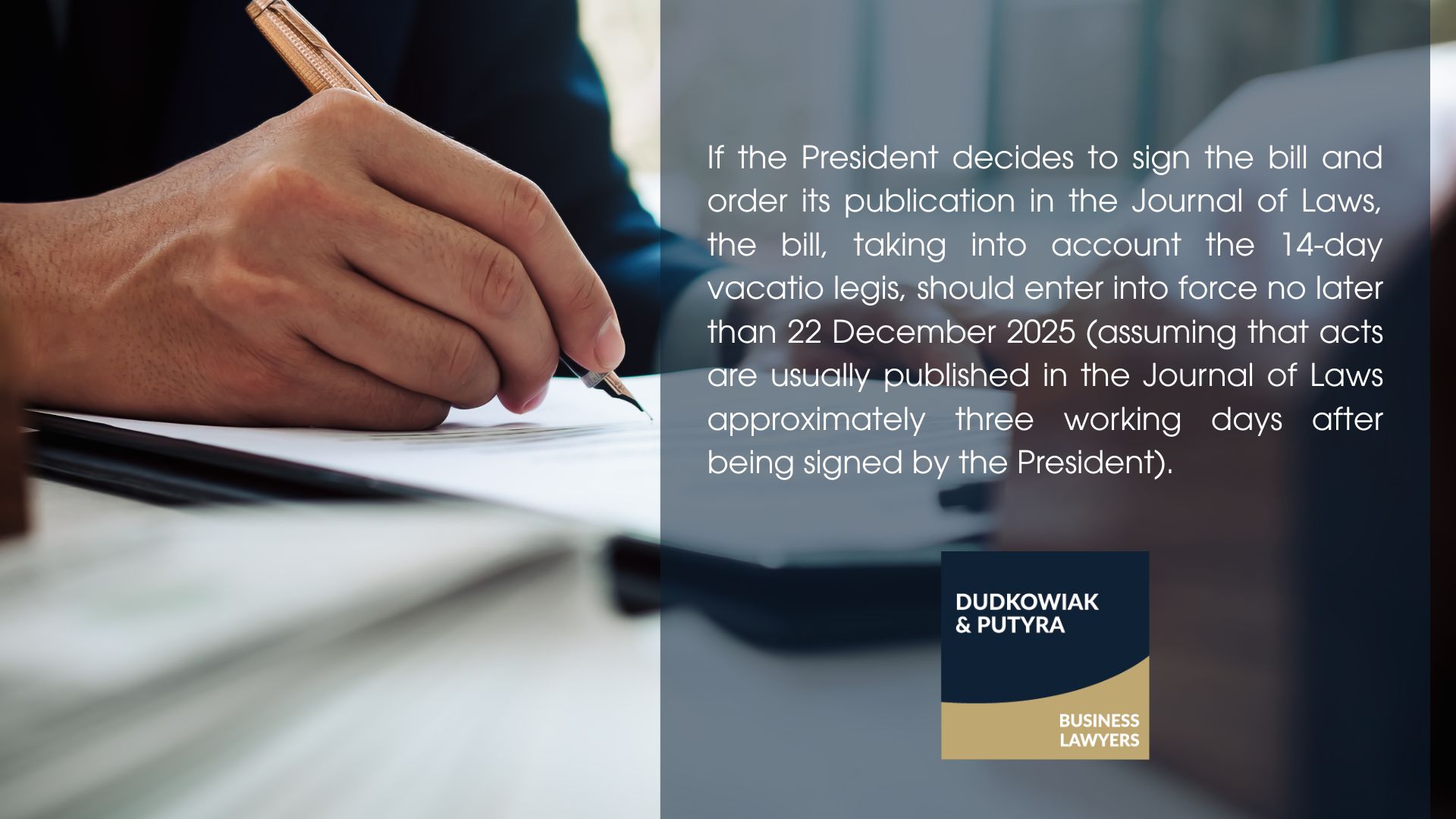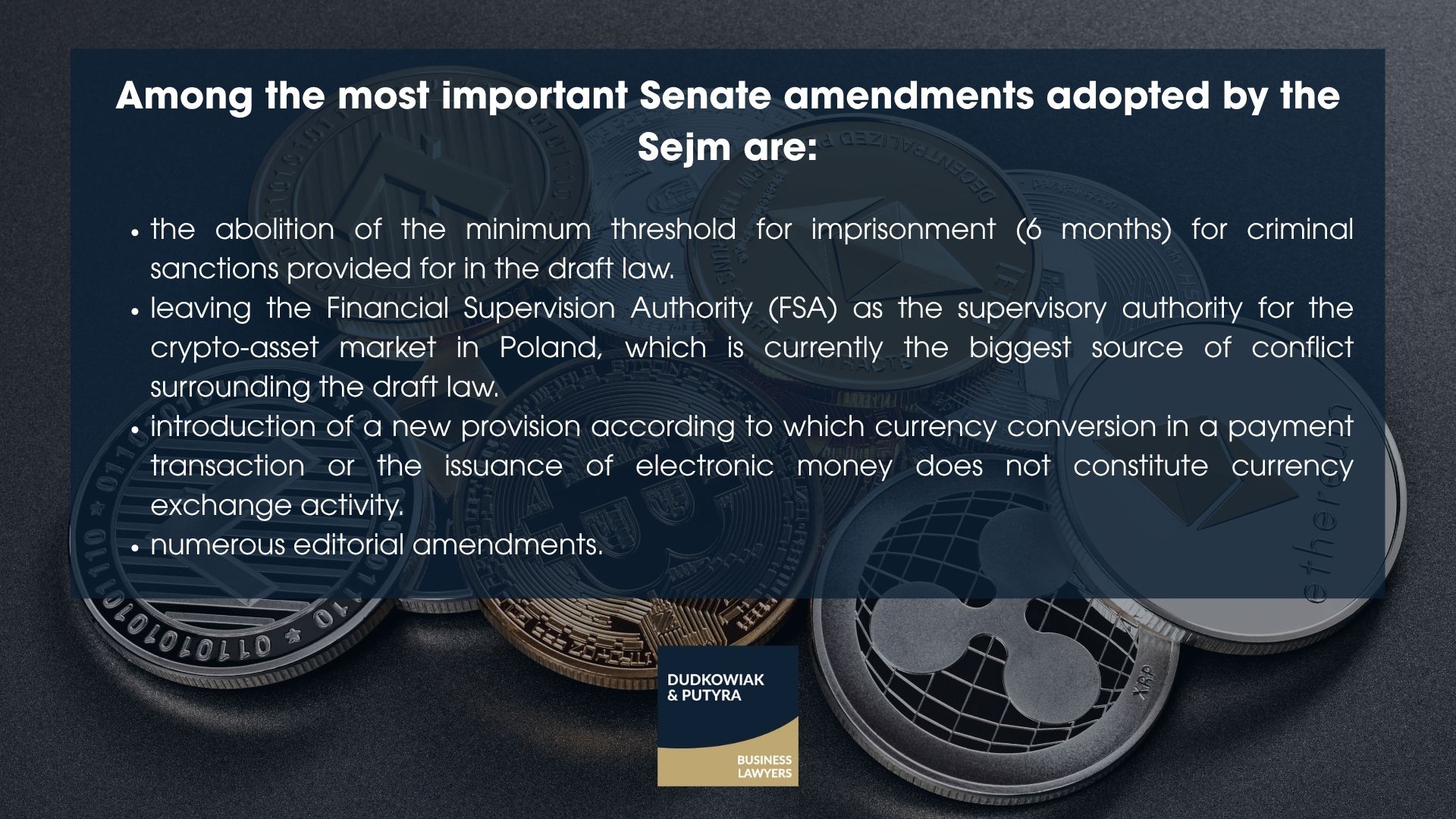Sejm adopts selected Senate amendments to the polish crypto-asset market bill
On 7 November 2025, the Sejm adopted some of the Senate’s amendments to the draft law on the crypto-asset market, thus paving the way for the draft to be submitted to the President of Poland for signature.
The President has 21 days to sign or refuse to sign (veto) the adopted bill upon receipt from the Marshal of the Sejm. The bill was submitted on 12 November 2025, which means that the President has until 3 December 2025 to make a decision.

If the President decides to sign the bill and order its publication in the Journal of Laws, the act, taking into account the 14-day vacatio legis, should enter into force no later than 22 December 2025 (assuming that acts are usually published in the Journal of Laws approximately three working days after being signed by the President).
If the President exercises his veto and returns the bill to the Sejm for further consideration, the Sejm would have to reject the presidential veto by a 3/5 majority, with at least half of the deputies present. The date of entry into force of the law regulating the Polish crypto-asset market in the above case is difficult to estimate, as the Sejm has no statutory deadline for voting on a vetoed bill.
It is worth noting that if the Sejm does not obtain the required majority, the bill will end its legislative life and a new bill will have to be drafted.

Among the most important Senate amendments adopted by the Sejm are:
- the abolition of the minimum threshold for imprisonment (6 months) for criminal sanctions provided for in the draft law. This means that instead of the minimum term of 6 months, the general lower limit of the penalty (1 month) will apply,
- leaving the Polish Financial Supervision Authority (KNF) as the supervisory authority for the crypto-asset market in Poland, which is currently the biggest source of conflict surrounding the draft law. Representatives of various circles believe that a new supervisory authority should be established, while the Ministry of Finance argues that the KNF is the best authority to perform this function,
- introduction of a new provision according to which currency conversion in a payment transaction or the issuance of electronic money does not constitute currency exchange activity. This clarification is intended to eliminate doubts as to the scope of regulatory obligations of National Payment Institutions performing standard payment operations,
- numerous editorial amendments.
Regardless of the final shape of the bill, one thing is certain – the domestic crypto-asset market is facing a regulatory revolution. If you operate or intend to operate in this industry, we encourage you to contact us in order to fully adapt your business to the new regulations.



